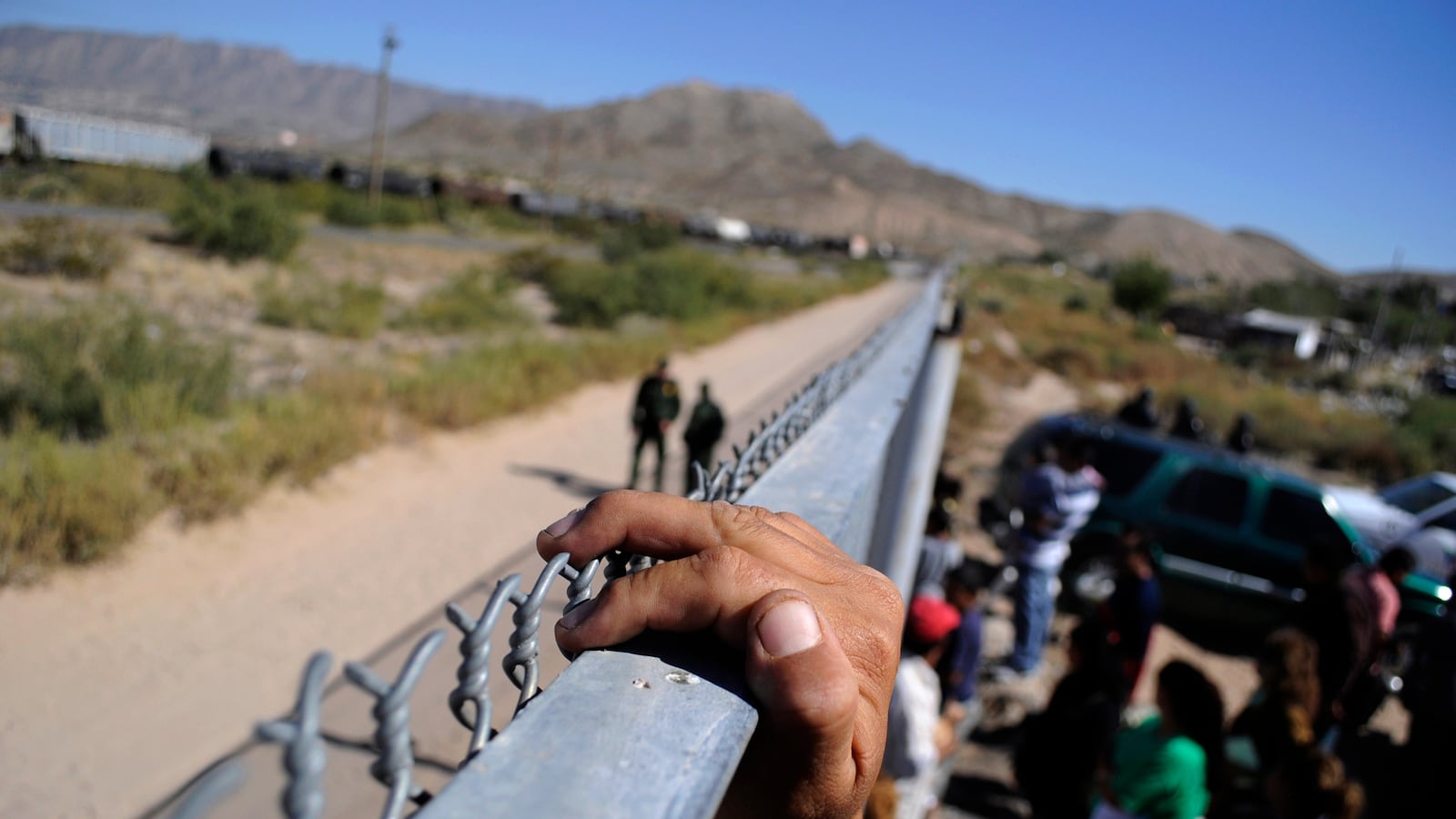“Migrants from everywhere, entrenched along the rail ties. Far away from where they come, further away from where they go,” singer Eddie Ganz croons in Spanish over the Caribbean beat of the marimba, a wooden xylophone-like instrument from Guatemala. “They call her the Beast from the South, this wretched train of death. With the devil in the boiler, whistles, roars, twists and turns.”
People throughout Honduras, Guatemala, and El Salvador call their local radio stations to request this song, a harrowing tale of violence and death set against the backdrop of Central America’s traditionally upbeat cumbia music. “La Bestia,” or “The Beast” refers to the notoriously dangerous freight train upon which thousands of migrants ride from Southern Mexico, risking robbery, kidnapping, rape, and murder just to make it to the U.S. border. It’s a familiar tale told by an expected source. In fact, the popularity of “La Bestia” owes itself in large part to the fact that its audience is not aware of its origins. The song, and others like it, are part of a U.S. Customs and Border Protection campaign to deter illegal immigration to the United States.
Last week, CBP announced plans to launch a new, million-dollar “Dangers Awareness Campaign,” aimed at discouraging families in Honduras, Guatemala, and El Salvador from sending their children with smugglers to cross the U.S. border through Mexico. A press release described billboards and public service announcements to be aired on television and radio in those three countries as well as U.S. cities with large Central American populations. Not highlighted was “La Bestia,” the song written and produced for the sole purpose of spreading CBP’s message through music.
“La Bestia” is not the first song commissioned by CBP, but it is the only one written specifically for a Central American audience. In 2004, CBP launched it’s first messaging campaign in Mexico called “No Mas Cruces,” which intentionally can be translated as both “No More Crossings” or “No More Crosses,” as in crosses on graves. The objective of “No Mas Cruces,” was to spread awareness about the dangers of the Sonoran desert, where hundreds of migrants die every year. Part of that campaign included distributing a CD of five songs about the risks involved in crossing the border to radio stations throughout Mexico. The songs, called “migra corridos,” a play on the popular narcocorridos or gangster ballads after which they were modeled, became hugely popular with listeners. “La Bestia” is currently played by 21 radio stations throughout Guatemala, El Salvador, and Honduras.
D.C.-based advertising agency Elevation worked with CBP on “No Mas Cruces” as well as the “Dangers” campaign, and creative director Rodolfo Hernandez is the man behind the songs.
Hernandez, originally from Mexico, channeled his background writing Spanish poetry and short stories to write the lyrics for “La Bestia” and the other corridos. He then enlisted the help of New York City musician Carlo Nicolau to compose the music. Professional jingle /voice-over artist Eddie Ganz provided the vocals. And, voila! Propaganda is made.
Customs and Border Protection would prefer the term “humanitarian campaign.” And, to Elevation’s credit, the songs are clearly focused on the very real and all too common risks involved in illegal immigration. “La Bestia,” references Mara Salvatrucha, or MS-13, one of the violent gangs involved in human smuggling and whose members stalk the infamous train, preying on any migrants who dare ride it. “El Mas Grande Enemigo,” a corrido Hernandez wrote for Mexican audiences, starts with two cousins setting out to cross the border together and ends with one of them dead in the desert.
What makes the music seem a bit manipulative is the fact that the songs are played as part of the radio stations’ regular rotation, with no disclaimer about who's sponsoring them. Elevation sends radio stations two versions of the songs: one, complete, three to four minute version. Another one less than a minute long with a brief PSA at the end. Neither mentions Border Patrol or the U.S. government—and that’s intentional. CBP knows that attaching it’s name to the campaign would immediately decrease its effectiveness.
“It’s more important to us that the message be delivered,” Laurel Smith, director of communications and outreach for CBP told The Daily Beast. “We want to make sure the audience is listening.”
And they are. In a 2009 Associated Press article about migra corridos, then-Border Patrol spokesperson Wendi Lee credited the songs with contributing to the drop in crossing deaths, from 492 in 2005 to 390 in 2008. The article also quoted the manager of one Mexican radio station who said his listeners loved the corridos because they could all relate to the stories in one way or another, but if they had any idea about CBP’s involvement the reaction would be drastically different.
Composer Carlo Nicolau understands. Born in the United States to Mexican parents, Nicolau has heard his fair share of horror stories from friends and relatives about migrants treated poorly by Border Patrol. So when he was first approached to create music for the Border Patrol, he was hesitant.
“I thought I was really going to bed with the devil,” he said. “I’d heard from many people that some of these Border Patrol agents are pretty shrewd. But I’ve learned that a lot of them are risking their lives to help people not die.”
Nicolau said he’d love to be involved in creating more songs for the Border Patrol, but in the meantime he’s confident that the music he composed for “La Bestia” and the others is timeless enough to remain relevant for years to come.
“I really think that putting music to this message makes it very powerful, because people listen to the radio in their towns and their villages,” he said. “The songs don’t accuse anyone of wrongdoing, there are no heroes or villains in these stories. They are just letting people know that their lives are in danger.”






